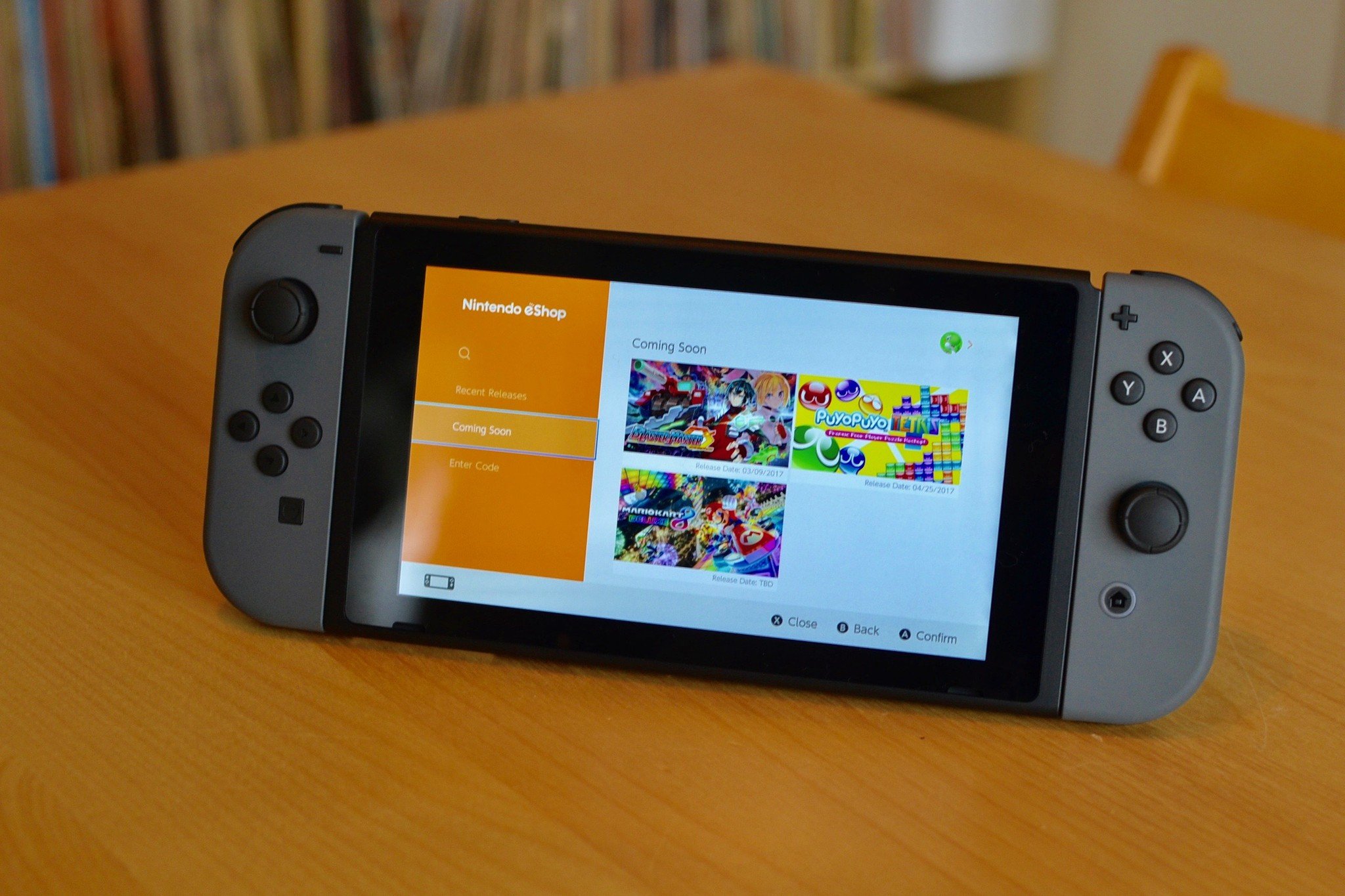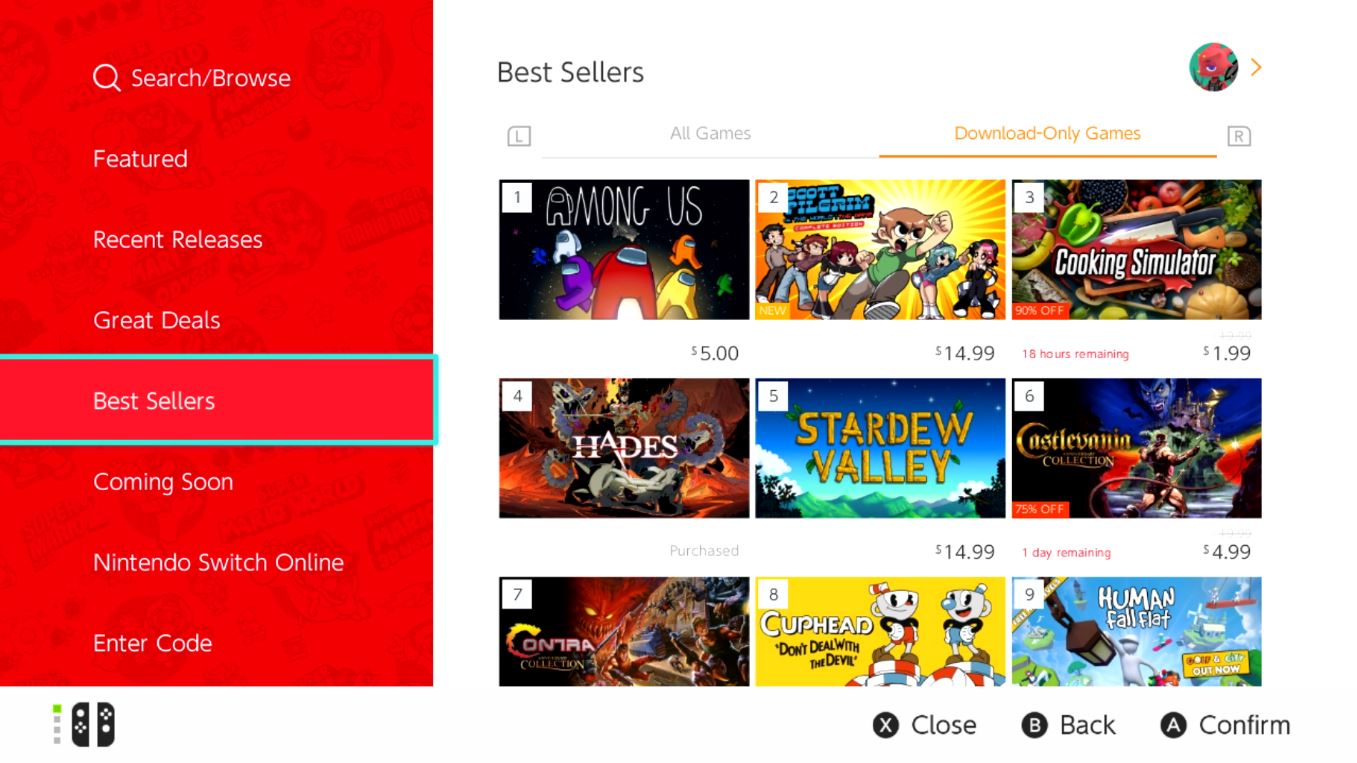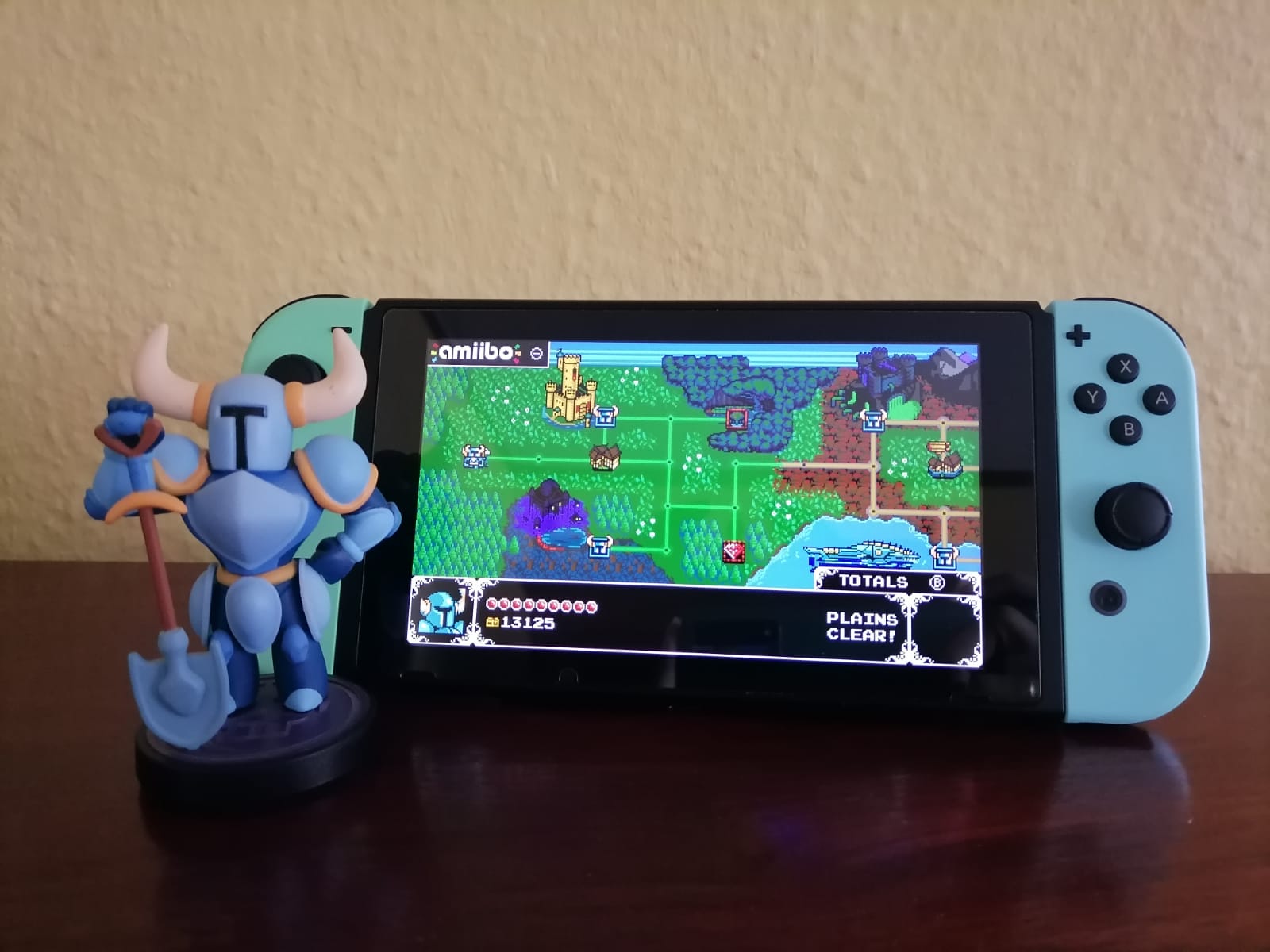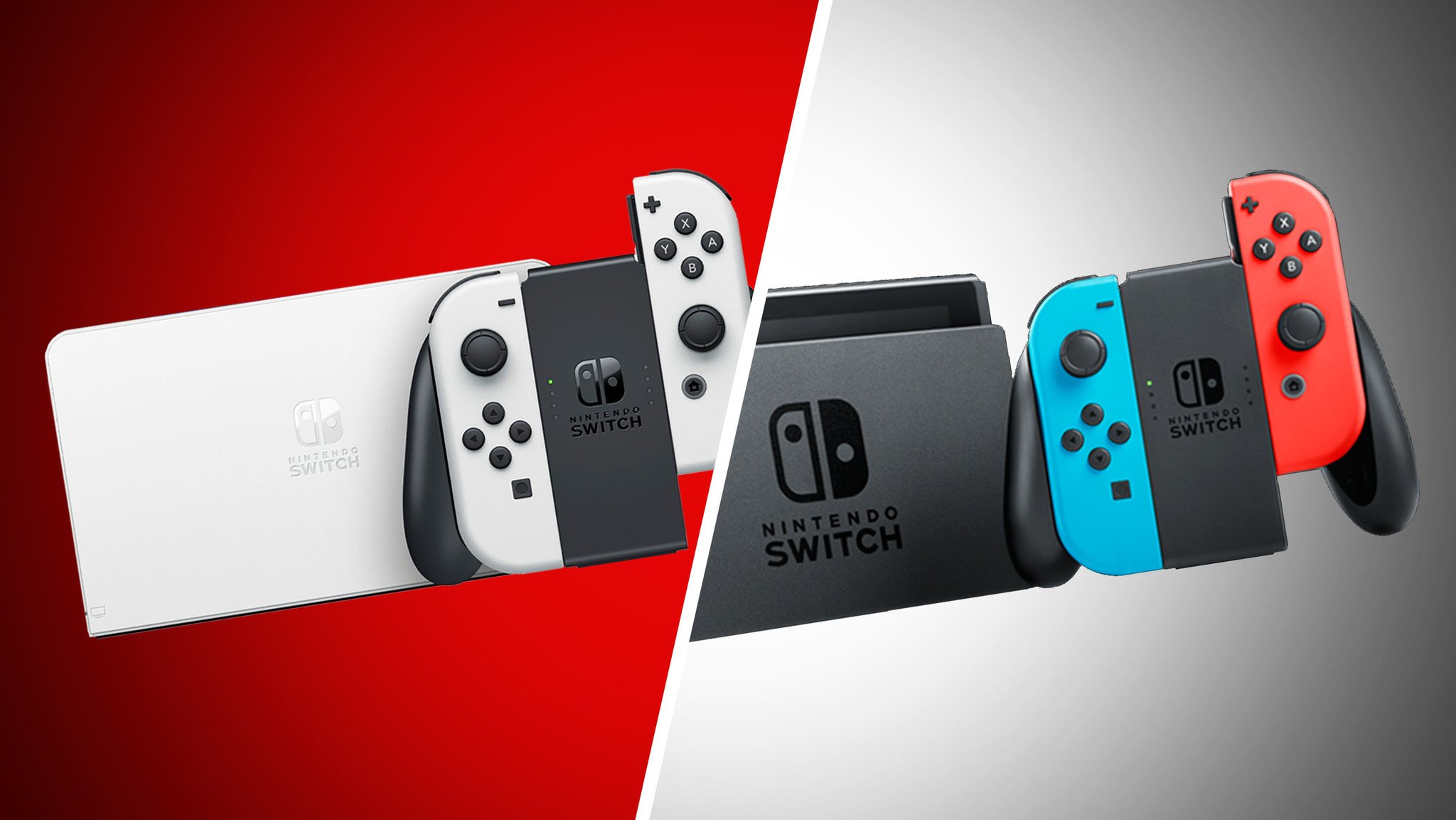Nintendo eShop needs a major makeover to get rid of false advertising and glitchy Switch games

Over the past few weeks, I've purchased several digital games from the Nintendo eShop. Unfortunately, roughly half of them have been incredibly glitchy, like Baldo The Guardian Owls and Sonic Colors Ultimate. Both games have since received updates post-launch. However, this has not fixed all of the issues players experience, and in the case of Baldo, the patch still hasn't made the game fully playable. For someone who purchased either game on opening week, I feel like I've been ripped off. I'm not usually one to spend a lot of time on the eShop, but this repeated disappointment made me take a long look at it and realize that it is not only dated but it's filled with so much false advertising that it makes me question Nintendo's credibility.
So what exactly would save the eShop? There are a few significant changes that need to happen. First, Nintendo needs to allow us to curate our eShop feeds and improve the search abilities. Strangely enough, that leads us to the second thing: regulating listings, starting by banning shovelware. Granted, it will take a lot of work on Nintendo's end, but it will make for a much better experience for developers and players alike.
Curate feeds and improve searches

While it is home to some of the best Nintendo Switch games, the Nintendo eShop doesn't make it easy to find anything but the latest releases, best-selling titles, and some deals. Think about how many excellent indie titles you might be missing out on because you can't curate your eShop feed to your specific preferences—making the search tools better will help us find more games to purchase and support developers. As it currently stands, developers have to manipulate the system for their games to get noticed.
As Kotaku reported, several small developers regularly sell their content for under a dollar on the eShop just so their work gets a small chance of appearing on those main eShop menus. In some cases, doing this helps the game sell way better than it did at launch, as explained via a Twitter post by Mike Rose, Director of video game publisher No More Robots. It's a long thread, but I recommend reading the whole thing as it very clearly explains what indie developers must go through to get their games to sell on the eShop or, hell, even to get much attention to begin with. But here's the part I'm going to focus on:
So where Not Tonight kept going strong because of the charts, YYG did not... I think it's time for a GRAPH
Here is Not Tonight's 90% off month, plotted against Yes, Your Grace's 40% off month (with numbers removed so I don't upset anyone) pic.twitter.com/n0QfzMF6M0So where Not Tonight kept going strong because of the charts, YYG did not... I think it's time for a GRAPH
Here is Not Tonight's 90% off month, plotted against Yes, Your Grace's 40% off month (with numbers removed so I don't upset anyone) pic.twitter.com/n0QfzMF6M0— Mike Rose (@RaveofRavendale) September 25, 2020September 25, 2020
At one point, he states that developers make "crazy money by manipulating the system. And it's only going to get worse, and more and more people realize this." For example, he recounts how he experimented with his company's video game sales on the eShop by listing Not Tonight for 90% off and Yes, Your Grace for 40% off. Not Tonight sold far more units and got more eyeballs, while Yes, Your Grace sold only about 13% as much as the other game while earning about 60% of the revenue of Not Tonight. The exciting part is that since the cheaper sale got so much more attention, Not Tonight continued to outsell Yes, Your Grace once the two games went back to full price. You can easily see why developers spam the sale page repeatedly when it pays off so well.
With how profitable it is to drop the price by 90%, developers can gather a tidy sum and regularly lower the price throughout the year. Unfortunately, seeing this quick and easy turnaround encourages some of the more shady developers to upload past projects that haven't entirely been updated for Switch controls and also sell those for pennies, which leads us to our next problem.
Prohibit shovelware and regulate listings

Undoubtedly, the worst thing about the Nintendo eShop is the amount of trash and shovelware on the platform. I'm not talking about Shovel Knight — he's a good boi that's never done wrong — I'm talking about when a company throws work it's already published elsewhere onto the eShop without making the necessary changes that would allow the game to work most effectively on the Switch. This leads to a lot of false advertising since some developers upload videos and images of their games running on a different system rather than showing how laggy or visually distinct it is on Switch.
Master your iPhone in minutes
iMore offers spot-on advice and guidance from our team of experts, with decades of Apple device experience to lean on. Learn more with iMore!
There's a lot of false advertising on the Nintendo eShop. Better regulations could fix that.
An insightful Reddit discussion has players listing the worst Switch port offenders. For instance, Tequila Works, the developers that brought us The Sexy Brutale and Rime, created terrible Switch ports for both of these games. When they launched, they both had severe lag and were glitchy as all get out. Not to mention, the visuals didn't look nearly as good in the Switch version as they did elsewhere. However, the images and Rime's video clip on the eShop don't show the visual discrepancy or lagginess. It's worth noting that patches and updates have been released for either game, but many players still don't feel like it was enough to fix some of the most significant issues.
Nintendo should fix this false advertising problem by either forcing developers to upload imagery and videos captured on Switch to the eShop listings or at least leave a note in the listing stating that visuals might be different in-game. These standards should apply to any games currently listed in the store, as well as any games going forward. Titles that don't make the necessary changes should be removed.
In a fantasy world, the Japanese gaming company would have a dedicated team that checked each game and only allowed non-glitchy games through, but Nintendo doesn't have the time for that when hundreds of games release on Switch each month. However, they could instate a reporting feature for games with false advertising or don't run well. Hell, even a user rating system would help with that, but Nintendo likely won't implement one as bad ratings would stop consumers from purchasing as many games.
On another regulatory note, it's become all too frequent of a practice for developers to launch their faulty games before they're ready to go and then patch them up later with a day one, day two, or day 30 patch. As I stated before, we've seen this just recently with Baldo The Guardian Owls and Sonic Colors Ultimate. There's a lot of bureaucracy in these decisions; developers aren't always able to reach their launch deadlines, and unexpected glitches are often found after a game launches. But it's a horrible experience for the consumer when a developer releases games that have known glitch problems and expects us to wade through Cyberpunk 2077 levels of necessary updates to play a game that caught our eye. It makes the developer look bad, and it makes Nintendo look bad for hosting the game.

Not to mention, getting burned repeatedly by eShop purchases creates a horrible experience for players and might prevent us from buying games from that specific developer or even from the eShop going forward. The worst part about all of this is that it often happens with indie games. I'm always eager to support a smaller studio when I can. But if I have to constantly question whether or not I'll even be able to play the game, I'm thinking about purchasing that's ridiculous and hurts the industry in general.
Nintendo's new Switch OLED model is releasing on October 8. It boasts several upgrades, including a better screen, better kickstand, better internal storage, and even more a LAN port within the dock. However, suppose Nintendo wants to make the upgraded experience complete. In that case, they will update the eShop visually and with improved search abilities and regulations in place that help protect potential buyers from false advertising. It's the only way to give Nintendo back the credibility that the eShop is currently losing.
Shape up
Purchasing games from the eShop is a gamble. You might get a perfectly working title that meets your expectations, or you might get shovelware that's glitchy as all get out. Unless significant changes are put in place real soon, the damage will only continue to affect more players.

Gaming aficionado Rebecca Spear is iMore's dedicated gaming editor with a focus on Nintendo Switch and iOS gaming. You’ll never catch her without her Switch or her iPad Air handy. If you’ve got a question about Pokémon, The Legend of Zelda, or just about any other Nintendo series check out her guides to help you out. Rebecca has written thousands of articles in the last six years including hundreds of extensive gaming guides, previews, and reviews for both Switch and Apple Arcade. She also loves checking out new gaming accessories like iPhone controllers and has her ear to the ground when it comes to covering the next big trend.
